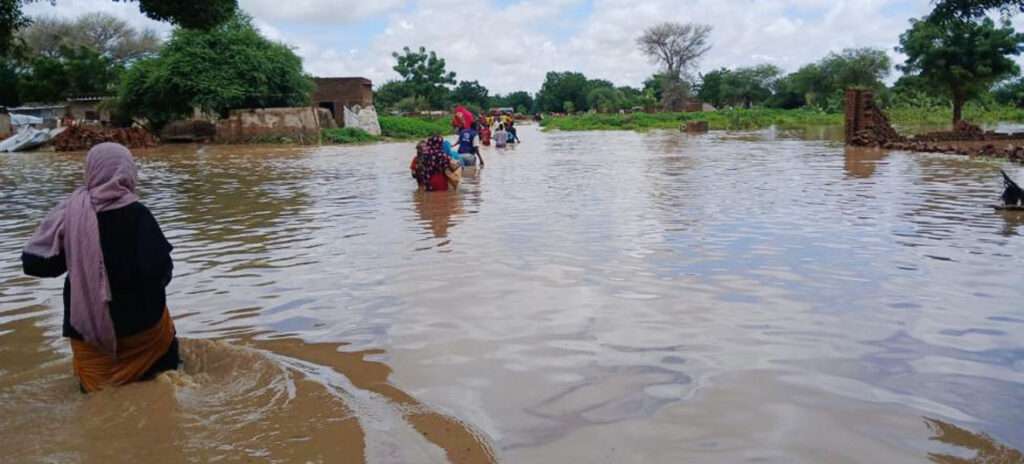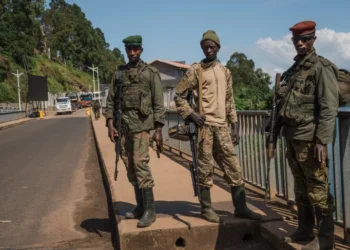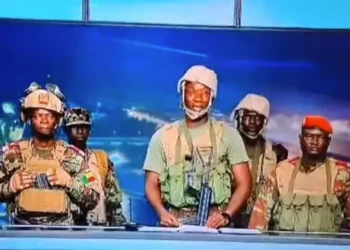Sudan is spiraling deeper into a humanitarian catastrophe, with nearly 16 months of relentless conflict ravaging the nation and leaving women, children, and the most vulnerable in unimaginable peril.
The United Nations’ aid agencies sounded the alarm on Tuesday, August 13 painting a grim picture of widespread sexual violence, a hunger crisis threatening the lives of countless children, and a country teetering on the edge of famine.
James Elder, spokesperson for the UN Children’s Fund (UNICEF), offered a heart-wrenching account from a hospital on the outskirts of Khartoum. He recounted the words of a senior medical professional who had witnessed unspeakable horrors.
“Hundreds, hundreds of women and girls, some as young as eight years old, have been raped,” Elder conveyed, his voice heavy with the weight of the atrocities.
“Many have been held captive for weeks on end.”
The devastation doesn’t end there. The same medic reported an increasing number of abandoned babies, born as a result of these violent acts, now left to fend for themselves in a country ravaged by war.
The harrowing stories from Al Nao Hospital in Omdurman are just the tip of the iceberg. Elder emphasized that many of the crimes against children go unreported, largely due to the overwhelming challenges in accessing these affected areas.
He issued a stark warning: without immediate intervention, tens of thousands of children could perish in the coming months. This chilling prediction, he stressed, isn’t even the worst-case scenario.
The onset of diseases such as measles, diarrhea, or respiratory infections, especially in the current conditions of heavy rains and flooding, could set off a deadly chain reaction, further endangering the lives of Sudan’s youngest and most vulnerable.
The International Organization for Migration (IOM) echoed this bleak outlook, noting that the ongoing conflict, which began in April 2022, has been compounded by severe flooding.

This dual assault of violence and natural disaster has created an almost insurmountable challenge for millions displaced by the power struggle between rival military factions. The conflict’s roots trace back to the 2019 ousting of long-time President Omar al-Bashir, a moment that promised hope but has since descended into chaos.
Famine Grips North Darfur Amid Violent Conflict
Earlier this month, global food security experts from the Integrated Food Security Phase Classification (IPC) Famine Review Committee delivered devastating news: famine conditions have taken hold in parts of North Darfur, including the Zamzam camp near Al Fasher.
The camp, housing half a million people, is gripped by extreme food shortages, leading to widespread malnutrition and death. Shockingly, 13 other regions are teetering on the brink of similar famine conditions.
“The devastation in El Fasher is profound and harrowing,” the IPC report declared. The authors described the relentless violence that has forced countless residents into internally displaced person (IDP) camps, where basic services are nearly non-existent, adding to the misery of those already suffering from displacement.
The IOM’s data presents a staggering reality: more than 10.7 million people have been displaced within Sudan, with many uprooted multiple times. The situation in Sennar state is particularly dire, where over 700,000 people were displaced last month alone. Most of these individuals had already been displaced from other areas, predominantly Khartoum.
Mohamed Refaat, IOM’s Chief of Mission in Sudan, underscored the scale of the crisis, revealing that one in three of the country’s internally displaced hail from Khartoum. “It’s as if almost the entire capital has been displaced,” he remarked, driving home the enormity of the situation.
Despite the desperate need, aid agencies face significant obstacles. The ongoing conflict has rendered many areas inaccessible, trapping civilians in what Refaat described as a “very hostile war environment” with no access to healthcare.
The situation is compounded by soaring prices and a severe shortage of basic necessities, exacerbated by militia groups seizing control of key locations and restricting the movement of non-combatants.
As Sudan’s humanitarian crisis deepens, the international community is confronted with a stark choice: act now or watch as millions more suffer the consequences of inaction.
READ ALSO: Over Half of Ghana’s Banks Positioned to Avoid Recapitalization- World Bank Report























